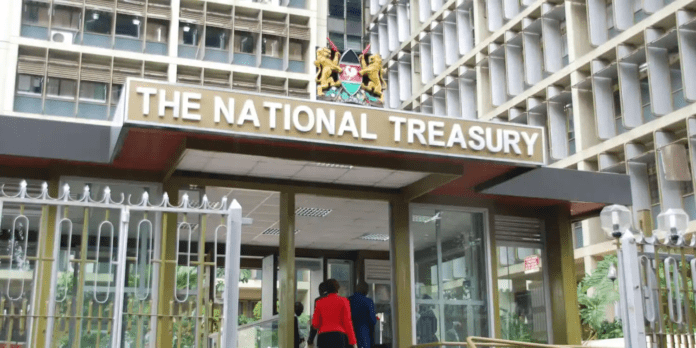Kenya is losing up to $1.5 billion (Ksh195 billion) every year due to corruption, state capture, and poor financial management, a new report by the African Development Bank (AfDB) has revealed.
According to the report, published on Wednesday, the losses stem from illicit financial flows, misuse of public funds, excessive tax exemptions, and widespread inefficiencies in government spending. These factors continue to weaken the country’s ability to finance its own development and reduce dependency on external aid.
“Corruption and illicit financial flows cost the East African nation as much as $1.5 billion annually – funds that could transform health, education, and infrastructure development,” AfDB noted.
Public Spending and Tax Incentives Drain Economy
The report further shows that inefficiencies in Kenya’s public spending cost the economy an estimated five percent of its GDP annually. In addition, the government forfeits around $800 million (Ksh104 billion) each year through tax incentives and exemptions—many of which are granted without proper justification or transparency.
“Combined, these losses undermine Kenya’s capacity to finance its own development and reduce reliance on external aid,” the report added.
State Capture, Legal Uncertainty Threaten Investment
AfDB also raised concern over the effects of state capture, where political elites wield disproportionate control over policymaking and law enforcement, creating an environment of uncertainty and risk.
“Investors fear biased rulings, delays, and lack of transparency, increasing operational risks and deterring investment,” the report warned.
The bank emphasized that strong legal systems and independent institutions are essential to boosting investor confidence and promoting sustainable economic development.
“Ultimately, the rule of law, upheld by robust law enforcement and an independent judiciary, remains the foundation for sustained economic growth, social equity, and public trust in governance,” the report said.
Kenya’s Global Corruption Ranking Remains Low
Kenya continues to perform poorly on global governance indicators. According to Transparency International’s 2024 Corruption Perceptions Index (CPI), the country ranked 121st out of 180 countries, with a score of 32 out of 100.
While this marks a slight improvement from the previous year’s score of 31, it remains below the Sub-Saharan Africa average of 33 and the global average of 43. Any score below 50 signals serious corruption in the public sector.
Over the past five years, Kenya’s CPI score has remained largely stagnant, with minimal progress made in addressing corruption. Historically, the country’s average ranking has hovered around 125 since 1996.
Entrenched Graft Despite Reform Efforts
Bribery, embezzlement, and misappropriation of public resources remain widespread, according to recent reports by Kenya’s Ethics and Anti-Corruption Commission (EACC). These challenges continue to undermine public confidence in institutions and hinder service delivery.
Public dissatisfaction with the level of integrity and accountability in government remains high, even as authorities commit to reform efforts and stricter enforcement of anti-corruption laws.
Growth Forecast Amid Governance Challenges
Despite the corruption concerns, the AfDB projects that Kenya’s economy will grow by 5 percent in 2025, up from 4.7 percent in 2024, driven largely by improved performance in the agriculture and services sectors.
However, growth is expected to slow slightly to 4.8 percent in 2026 as global economic conditions tighten.
AfDB cautioned that unless Kenya addresses issues of inequality, joblessness, and poverty, economic growth will remain largely non-inclusive.
“Rising poverty, high unemployment, and growing inequality indicate that Kenya’s economic growth has not been fully inclusive,” the bank stated.
The report comes as Kenya continues to face pressure from international lenders and development partners to implement fiscal and governance reforms aimed at boosting domestic revenue and improving public sector efficiency.







